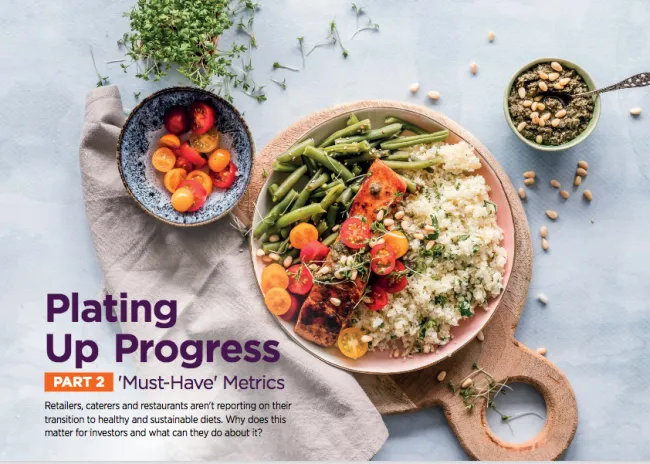This second investor briefing from the Plating Up Progress-project proposes a new set of metrics that investors will need if they are to assess how well food businesses are managing the risks and opportunities they are facing regarding urgent health and sustainability issues.
This second investor briefing from the Plating Up Progress-project proposes a new set of metrics that investors will need if they are to assess how well food businesses are managing the risks and opportunities they are facing regarding urgent health and sustainability issues.
Plating Up Progress demonstrates that investors can identify opportunities and avoid risks by understanding how far food businesses are prepared for the transition to sustainable and healthy food, and puts forward the necessary metrics for assessing progress.
Businesses with strong supply chain management and revenues which are aligned with healthy and sustainable food are likely to thrive; those dependent on business models rooted in the current system are exposed to various types of risks:
- physical risks (climate-driven volatility for the supply and price of crops, livestock and animal feed);
- policy interventions (taxes on sales of unhealthy food, land use and food waste regulation, meat and dairy reduction, mandatory labelling); and
- shifts in consumer demand and reputational impact.
This report follows an earlier Plating up Progress-briefing which identified the risks and opportunities that food retailers, caterers and restaurants are facing regarding urgent health and sustainability issues.
These two investor briefings focus on food retailers, caterers and restaurants because, sitting at the end of the supply chain as they do, they are potentially at the sharp end of regulatory or market-driven changes that affect food supply, prices and demand for new products. They’re also the channel through which most commercially produced food is funnelled, so are the best indicators for whether meaningful shifts are taking place in food industry.





Comments (0)